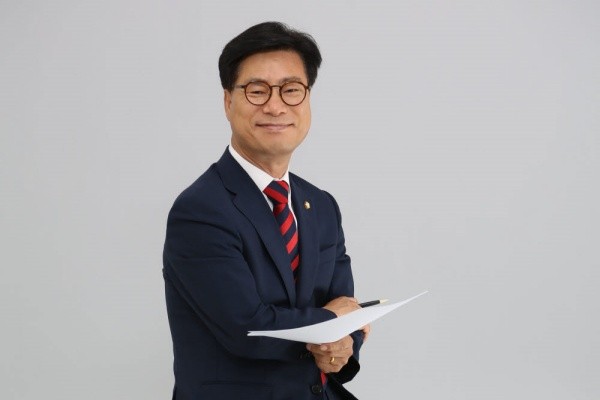A bill that can reduce burden for South Korean semiconductor companies such as Samsung Electronics and SK Hynix regarding equipment operation has been proposed. The main point of the bill is allowing key equipment to be used early for production lines through simplification of regulations. As competitions within the global foundry industry are becoming fiercer, the bill is expected to raise South Korean semiconductor companies’ speed in responding to the market.
Kim Young-sik, who is a member of People Power Party, recently proposed a “partial amendment of the Radio Waves Act” that includes such information.
The main point of the amendment is simplifying approval procedures that are necessary to operate RF (radio frequency) equipment that is used a lot during semiconductor production process. In other words, if a company has a plant that is equipped with multi-layer shielding facilities for “radio wave application equipment” for industrial, scientific, and medical purposes as well as RF equipment or moves or brings in similar equipment, the amendment will allow the company to operate the equipment just by reporting the installation of the equipment.
Based on the current Radio Waves Act, a company needs to receive an approval from the minister of the Ministry of Science and ICT (MSIT) before installing a radio wave application equipment and report installation of the equipment and receive inspection for the installation. Compared to how 5G base stations are able to use radio wave application equipment right after they report installation and receive inspections in the future, regulation in the semiconductor industry has been much stricter.
The industry has shown a welcoming sign towards the amendment by saying that the legislative bill is absolutely needed in order to increase the industry’s competitive edge in production.
RF equipment is an equipment that is used during different processes such as etching and deposition. Advanced RF equipment is needed to create a “plasma” state within a chamber where wafers are placed.

Currently, Samsung Electronics and SK Hynix have about 70,000 to 80,000 RF equipment that costs anywhere between millions of dollars to tens of millions of dollars. Annually, they relocate and replace about 12,000 units on average. Based on the current legal system, it takes anywhere between 60 and 90 days before an equipment is brought in and is operated.
The amendment is expected to greatly reduce days it takes before a RF equipment is operated. Particularly, it is expected to minimize any setback in operation as on-time production is very crucial in semiconductor market.
“In case of Japan and China, they have systems that allow an equipment to be operated as soon as it is brought in.” said one official from the semiconductor industry. “We welcome the proposal that will allow the industry to take quicker actions to any change.”
The industry believes that there will be any safety issue even if the current regulation on installation of RF equipment is eased as each semiconductor company has already installed shielding facilities so that radio wave that can occur during a semiconductor production process does not escape a plant. Steel-based concrete without any window and enough shielding significantly lower a possibility of radio wave affecting other communications equipment.
“Plants of companies such as Samsung Electronics and SK Hynix are built while considering preventing high-frequency waves from escaping the plants.” said one official from the Korea Semiconductor Industry Association. “The fact that Samsung Electronics’ plants have not caused any communication failure proves that semiconductor plants are built to prevent any radio wave from escaping.”
It has also been confirmed that the MSIT is positioned to accept the amendment as it agrees with reasonings and purposes behind the amendment.
Kim Young-sik said that the amendment has legitimacy to it since RF equipment installed inside of multi-layer shielding facilities almost has no possibility of affecting other communications equipment outside of the facilities and that specific standards can be adjusted depending on enforcement decrees and others.
Staff Reporter Kang, Hyeryung | kang@etnews.com & Staff Reporter Park, Jisung | jisung@etnews.com